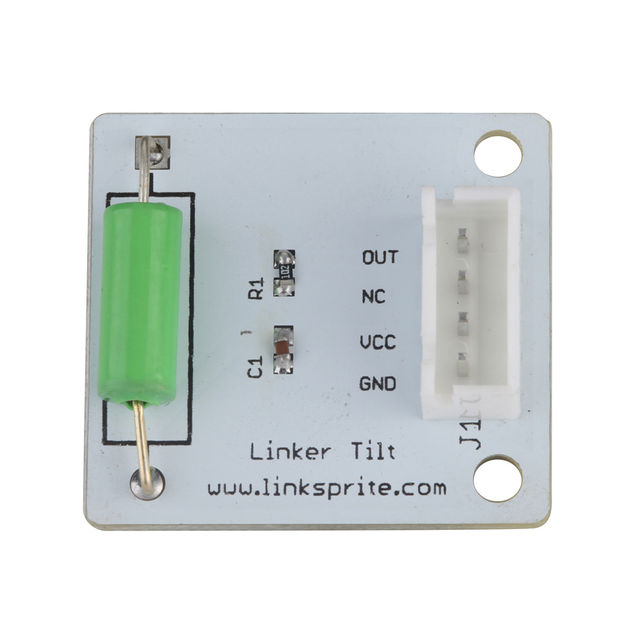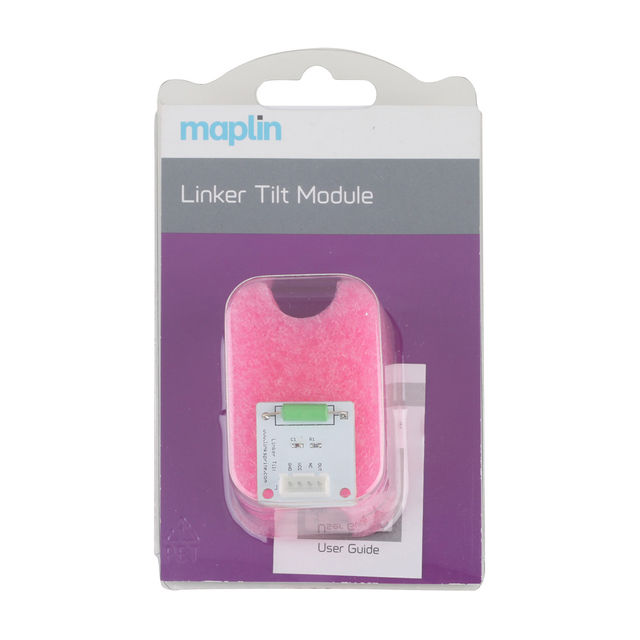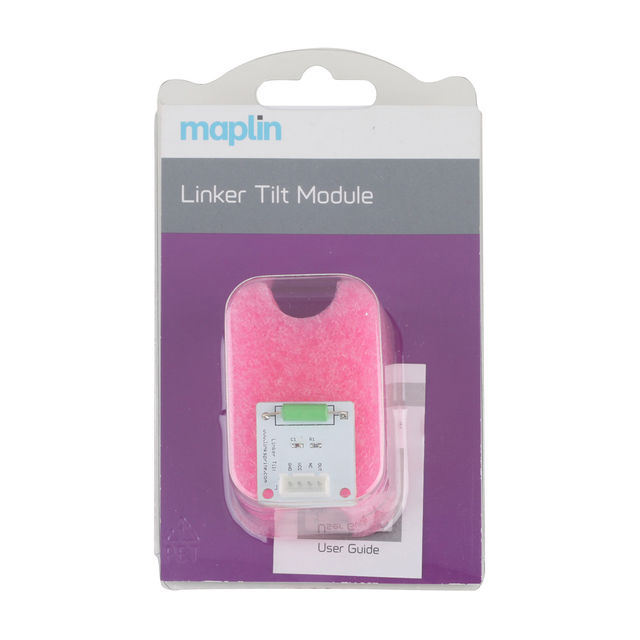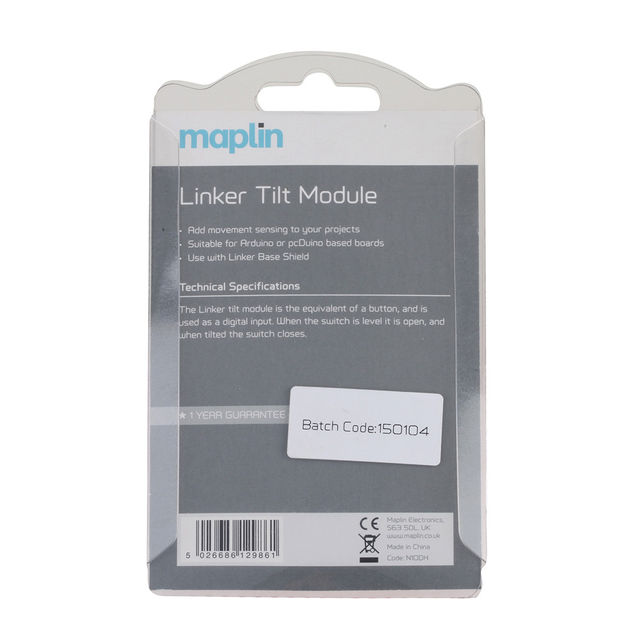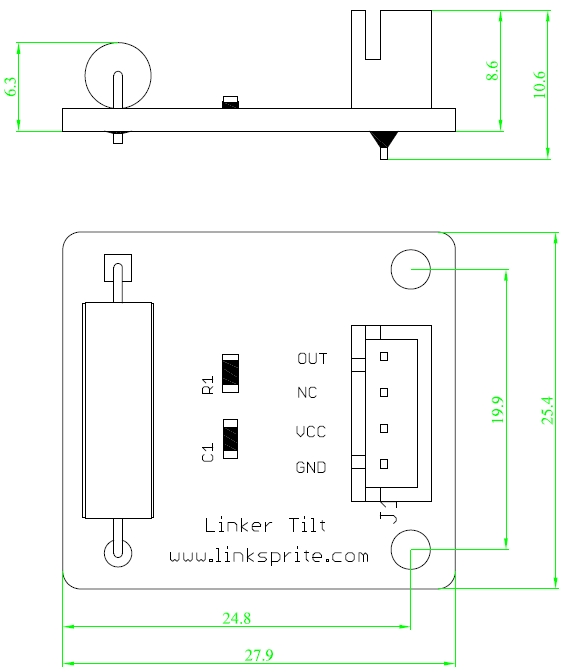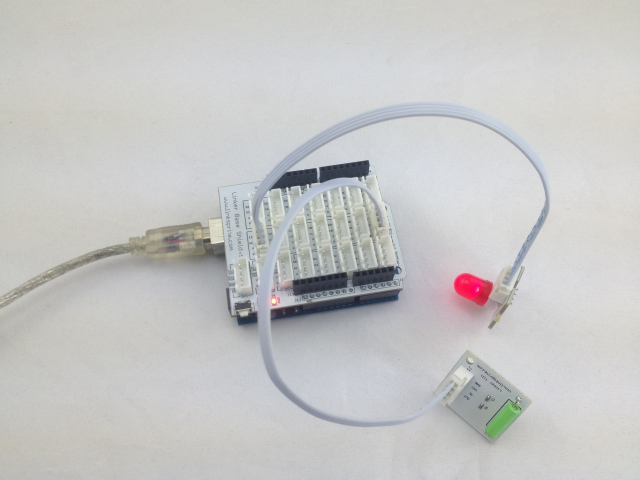Difference between revisions of "Tilt Module"
Qian.zhang (talk | contribs) (→Features) |
Qian.zhang (talk | contribs) (→Introduction) |
||
| Line 2: | Line 2: | ||
The Linker Tilt Module is the equivalent of a button, and is used as a digital input. Inside the tilt switch is a pair of balls that make contact with the pins when the case is upright. Tilt the case over and the balls don't touch, thus not making a connection. It is wired to the SIG line, NC is not used on this kit. | The Linker Tilt Module is the equivalent of a button, and is used as a digital input. Inside the tilt switch is a pair of balls that make contact with the pins when the case is upright. Tilt the case over and the balls don't touch, thus not making a connection. It is wired to the SIG line, NC is not used on this kit. | ||
| − | [[File: | + | [[File:N10DH WITHOUT PACKAGED FRONT.jpg|640px]] |
| + | |||
| + | [[File:N10DH WITHOUT PACKAGED BACK.jpg|640px]] | ||
| + | |||
| + | [[File:N10DH PACKAGED FRONT.jpg|640px]] | ||
| + | |||
| + | [[File:N10DH PACKAGED BACK.jpg|640px]] | ||
== Features == | == Features == | ||
Revision as of 05:31, 6 September 2015
Introduction
The Linker Tilt Module is the equivalent of a button, and is used as a digital input. Inside the tilt switch is a pair of balls that make contact with the pins when the case is upright. Tilt the case over and the balls don't touch, thus not making a connection. It is wired to the SIG line, NC is not used on this kit.
Features
Dimensions: 27.9×25.4×10.6mm
Net weight: 3.6g
Dimension
Schematics
Application Ideas
<syntaxhighlight lang="c">
int ledPin = 13; int switchPin = 7; int val = 0; void setup() {
pinMode(ledPin,OUTPUT); pinMode(switchPin,INPUT);
} void loop() {
//digitlRead(switchPin,HIGH) val = digitalRead(switchPin); if (HIGH == val) digitalWrite(ledPin,HIGH); else digitalWrite(ledPin,LOW);
}
</syntaxhighlight>
How to buy
Here to buy Tilt Module on store
